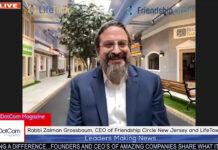Remarketing is a powerful digital marketing strategy designed to reconnect with individuals who have previously interacted with your website or mobile app. By utilizing cookies, remarketing tracks these visitors and shows them targeted ads as they browse other sites or social media platforms. This approach aims to recapture potential customers who have shown interest but have not yet completed a conversion, thereby enhancing brand recall and increasing the likelihood of a sale.
Remarketing can significantly improve the effectiveness of your marketing campaigns. By targeting users who are already familiar with your brand, you can deliver personalized ads that resonate more deeply. This increases engagement rates and helps in driving conversions more efficiently. Remarketing also allows you to segment your audience based on their behavior on your site, ensuring that the ads they see are highly relevant to their interests and needs.
Key Aspects of Remarketing
Here are ten important aspects to understand about Remarketing:
- Audience Segmentation: Divide your audience into segments based on their behavior and interactions with your site. This ensures that your ads are relevant and targeted.
- Personalized Ad Content: Use dynamic ad content that changes based on the user’s past interactions with your site. Personalized ads are more likely to capture attention and drive conversions.
- Cross-Platform Retargeting: Implement remarketing across various platforms, including social media, search engines, and display networks, to maximize reach.
- Frequency Capping: Control how often your ads are shown to avoid overwhelming or annoying potential customers, which can lead to ad fatigue.
- Exclusion Lists: Create exclusion lists to prevent showing ads to individuals who have already converted, ensuring that your ad spend is used efficiently.
- Ad Scheduling: Schedule your ads to appear at optimal times when your audience is most likely to engage with them, improving the chances of conversion.
- Geo-Targeting: Use geographic targeting to show ads to users in specific locations, which can be particularly effective for local businesses or region-specific campaigns.
- A/B Testing: Regularly test different ad creatives, messaging, and formats to determine what resonates best with your audience and optimizes performance.
- Conversion Tracking: Implement robust conversion tracking to measure the effectiveness of your remarketing efforts and make data-driven decisions for future campaigns.
- Budget Management: Allocate your budget strategically, prioritizing high-performing segments and platforms to ensure a good return on investment.
In-Depth Analysis
Remarketing plays a crucial role in modern digital marketing strategies. Here’s a comprehensive exploration of each key aspect listed above:
Audience Segmentation
Audience segmentation is the foundation of a successful remarketing campaign. By analyzing user behavior, such as pages visited, time spent on the site, and actions taken, marketers can create tailored segments. For example, visitors who abandoned a shopping cart can be targeted with ads highlighting the products they left behind, while those who read blog posts about a specific topic can be shown related product recommendations.
Segmentation allows for a more personalized approach, ensuring that the ads are relevant to each user group. This relevance increases the likelihood of engagement and conversion. Advanced segmentation strategies can include factors like demographic information, purchase history, and engagement levels with previous ads.
Personalized Ad Content
Personalization is key to the effectiveness of remarketing. Dynamic ads, which change content based on user behavior, can display specific products or services the user has shown interest in. For instance, if a user visited a specific product page but didn’t make a purchase, the remarketing ad can feature that exact product, possibly with an incentive such as a discount.
This level of personalization makes the ads more relevant and appealing, significantly boosting the chances of conversion. Personalized ads can also be tailored to different stages of the buyer’s journey, from awareness to consideration to decision.
Cross-Platform Retargeting
To maximize the impact of remarketing, it’s essential to reach users across multiple platforms. This includes social media sites like Facebook and Instagram, search engines like Google, and various display networks. Each platform offers unique advantages and can cater to different audience segments.
Cross-platform retargeting ensures that your ads are seen by potential customers wherever they spend their time online. It also allows for a consistent brand message and experience across different channels, reinforcing brand recall and driving engagement.
Frequency Capping
While remarketing is effective, it’s important not to overwhelm users with too many ads. Frequency capping allows you to limit the number of times an ad is shown to the same user. This prevents ad fatigue, which can lead to negative perceptions of your brand and decreased effectiveness of your campaigns.
By setting a frequency cap, you ensure that your ads remain fresh and engaging, maintaining user interest and increasing the likelihood of conversion.
Exclusion Lists
Exclusion lists are a crucial tool for efficient remarketing. These lists help ensure that you don’t waste resources by showing ads to individuals who have already converted or are unlikely to convert. For example, once a user makes a purchase, they can be added to an exclusion list to avoid showing them the same product ads.
Exclusion lists can also be used to filter out audiences that are not relevant to your campaign, such as employees or existing customers who are already engaged with your brand through other channels.
Ad Scheduling
Timing is everything in marketing, and remarketing is no exception. Ad scheduling allows you to display your ads at times when your target audience is most active and likely to engage. For instance, if your analytics show that your website gets the most traffic during weekday evenings, you can schedule your ads to appear more frequently during those times.
Proper ad scheduling maximizes the chances of your ads being seen and interacted with, leading to higher engagement rates and conversions.
Geo-Targeting
Geo-targeting involves showing ads to users based on their geographic location. This is particularly useful for local businesses or campaigns targeting specific regions. By tailoring ads to local events, weather, or cultural nuances, you can create more relevant and engaging advertisements.
Geo-targeting also allows for better allocation of ad spend, focusing resources on areas with the highest potential for return on investment.
A/B Testing
Continuous improvement is essential for any marketing strategy. A/B testing, or split testing, involves creating multiple versions of an ad to see which performs better. This can include variations in ad copy, images, calls to action, and more.
By regularly conducting A/B tests, you can gain insights into what resonates most with your audience and refine your campaigns to optimize performance and drive better results.
Conversion Tracking
Measuring the success of your remarketing campaigns is crucial for making informed decisions. Conversion tracking allows you to see how many users who saw your ads went on to complete a desired action, such as making a purchase or filling out a form.
This data helps you understand the effectiveness of your remarketing efforts, identify areas for improvement, and make data-driven decisions to enhance future campaigns.
Budget Management
Effective budget management is key to maximizing the return on your remarketing investment. By analyzing performance data, you can allocate more budget to high-performing segments and platforms, while scaling back on those that are less effective.
Strategic budget allocation ensures that you are getting the most out of your ad spend and driving the best possible results for your business.
Conclusion
Remarketing is a vital strategy in the digital marketer’s toolkit, offering numerous benefits from increased brand recall to higher conversion rates. By understanding and implementing the key aspects outlined above, businesses can create highly effective remarketing campaigns that deliver substantial returns on investment.















